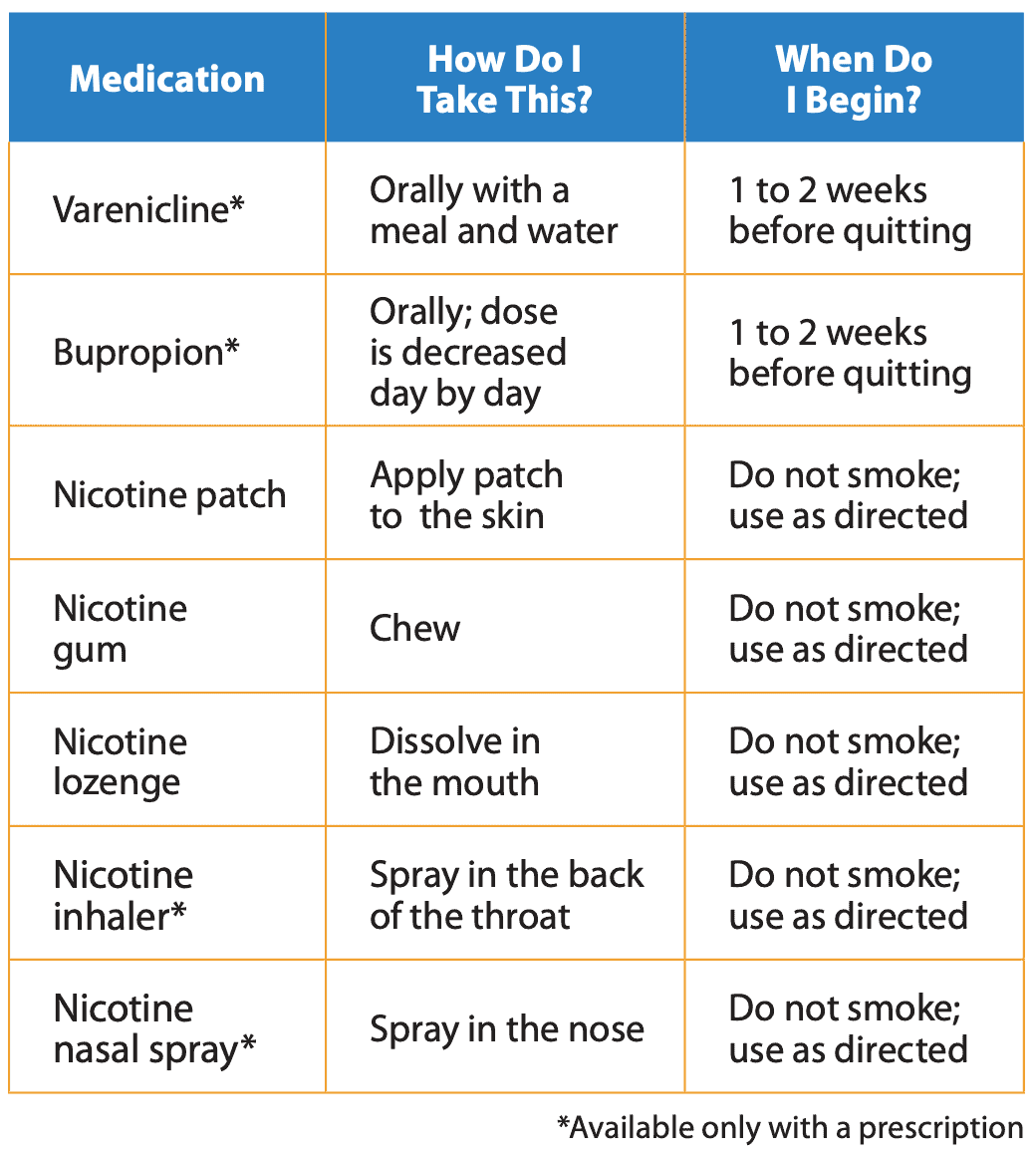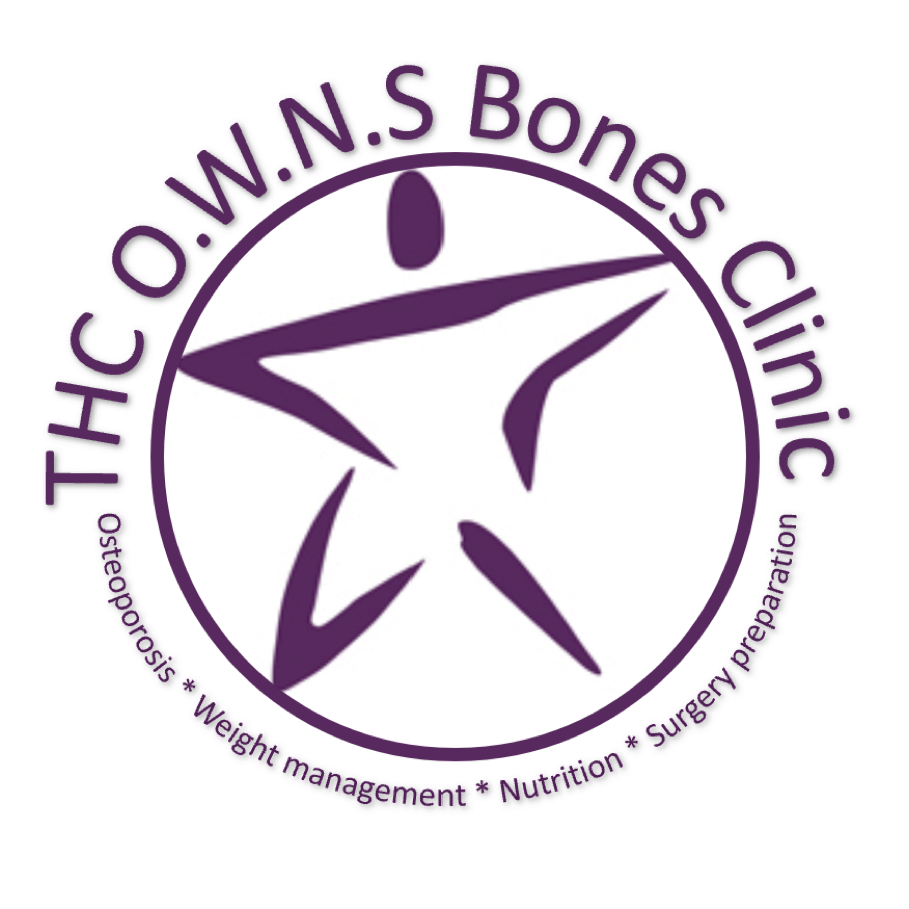Surgery Prep & Smoking Cessation
Smoking Cessation
Did you know that before surgery is the best time to quit smoking?
- You will decrease your risk of complications.
- The quit rate is much higher when you quit before your operation.
- You will most likely be receiving pain medication after surgery, which will decrease your withdrawal effects.
Do your part and quit now! Your surgical team is here to help.
What are the benefits of quitting smoking before your surgery?
- Wound healing: Smoking interferes with all phases of wound healing. It also decreases the ability of the cells to kill bacteria and fight infection. Quitting 4 weeks before a surgical procedure reduces postoperative wound complications by 20 to 30 percent.
- Bone & implant healing: Smoking interferes with the ability of your bones to heal together and to bond with the orthopedic implants often used during your surgery. This can lead to prolonged postoperative pain and loosening of your implants requiring a second revision surgery.
- Breathing: Smoking increases the mucus in the airways and decreases your ability to fight infection. It also increases the risk of pneumonia and other breathing problems. Airway function improves if you quit 8 weeks before your procedure.
- Medical complications: The nicotine from cigarettes can increase your blood pressure, heart rate, and risk of arrhythmias (irregular heart beat). The carbon dioxide in cigarettes decreases the amount of oxygen in your blood. Quitting at least 1 day before your operation can reduce your blood pressure and irregular heart beats.
Many treatments exist to help you quit more easily and successfully. Multiple approaches (counseling plus medication and quit lines) work best to help you stay quit for life. Here are the options that we can use to help you quit:
- Cold turkey: Quitting on your own because you are motivated to have a successful surgery.
- Smoking cessation counseling with your doctor/professional.
- Telephone counseling: Call the Quit Line at 1-800-QUIT-NOW (1-800-784-8669). Help is free and all information is confidential.
- Behavior therapy: Training to help you cope when you want a smoke.
- Medications:

Preoperative Optimization
We want to help you achieve the best surgery outcome at the lowest possible cost (such as having your surgery at an ambulatory surgery center instead of hospital) with the fewest complications. We also seek to use this motivational opportunity of surgery to improve your general health!
Prior to surgery, we typically review some screening tests to confirm the working order of your organs and check with your primary care/specialist doctors like cardiology to understand your health history. The concept of Enhanced Recovery After Surgery (ERAS) takes this further by using patient-centered, evidenced-based, multidisciplinary team developed pathways to reduce your surgical stress response, optimize your body’s functions, and facilitate your recovery. Here are some of the things that we can consider to get your body ready for an upcoming surgery:
- Prehabilitation and frailty reduction - Our physical therapy team is here to help you get in good physical shape for your surgery with exercises to prepare your body to be resilient for the upcoming surgery to get you home quickly.
- Healthy body weight achievement - Both overweight and underweight are problems for surgery. We can help you with dietary changes, exercise options including aquatic therapy, and FDA-approved medications to help you achieve a healthy weight before surgery to reduce your risks of problems like infection
- Malnutrition avoidance - We can check blood labs to ensure that your nutrition is in good shape to heal your incision and avoid problems like poor wound healing.
- Tobacco & alcohol cessation - Tobacco and alcohol intake raise your risks of anesthesia complications, slow your body’s recovery from surgery, and can lead to serious complications like pneumonia, wound infection, and adverse reactions to postoperative medications. We can provide you with resources and medications to help you quit!
- Anemia (Low blood count) correction - Even mild low blood counts before surgery can make you feel fatigued, dizzy, and weak after your expected blood loss in surgery thus slowing your recovery. We will check labs to ensure that you do not have low blood counts before surgery. If you do, we will search for the underlying cause and treat you with medications to build up your blood counts to safe levels before the surgery to power you through your postoperative recovery!
- Sleep apnea identification - High quality sleep is critical to your surgery recovery. Many patients live with unrecognized sleep apnea that causes you to stop breathing during sleep, preventing the restorative level of rest that you need. We can get you screened and treated for any sleep apnea before your surgery to help you get the rest you need to recovery quickly!
- Diabetes screening and blood sugar control - Some patients have undiagnosed pre-diabetes or even frank diabetes before surgery. A simple preoperative blood test can determine this. For patients with known diabetes, having excellent preoperative blood sugar control will ensure that your body can process nutrition and prevent complications like surgery site infection.
- Medication management around the time of surgery - Some medications need to be stopped days or weeks prior to surgery. Many are safe to continue. We can help coordinate long-term medications like blood thinners, narcotic medications, inflammatory arthritis immunosuppressants, and many more to help you feel confident in your medication plans throughout the surgical experience!
- Depression and anxiety identification - Depression and anxiety, both chronic and procedure-related, can vastly affect your surgery attitude, response, and recovery. We know that acute injuries and chronic body degeneration can worsen baseline depression and anxiety. We are here to help you manage your emotional state around the time of surgery to help you prepare, execute, and recover with grace!
- Hepatitis C treatment - Some liver problems like hepatitis C are actually curable, but the treatments can be expensive. Sometimes, an upcoming surgery can help justify the cost of treatment to your insurance company and help you be healthier both for your surgery and the rest of your life!
- Urinary function - Both urinary retention (inability to pee) and incontinence (inability to hold your pee) can affect your surgery recovery. Retention can require painful urinary catheters that prolong your hospital stay and expose you to the risk of catheter-associated infections. Incontinence can affect your skin and cause falls during the early recovery after surgery. We can help you access treatments to minimize the impact of these conditions on your recovery.
- Peripheral vascular disease - Poor blood flow can cause surgical wounds to heal slowly or not at all. We can screen your blood vessels for problems and figure out if re-opening your blood vessels is required prior to your orthopedic surgery.
References:
- American College of Surgeons "Quit Smoking Before Your Operation"

